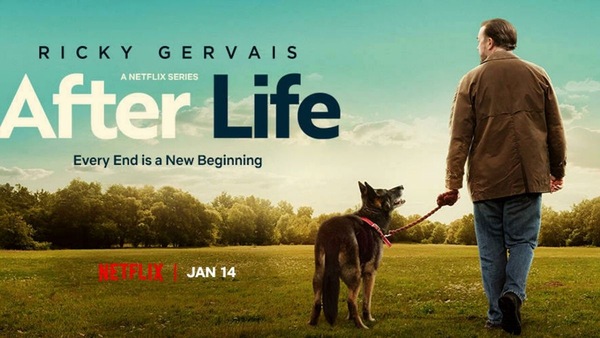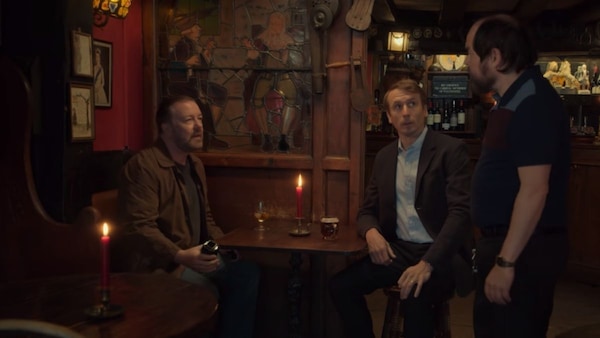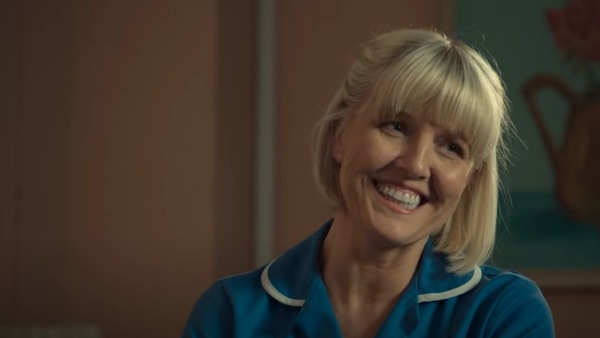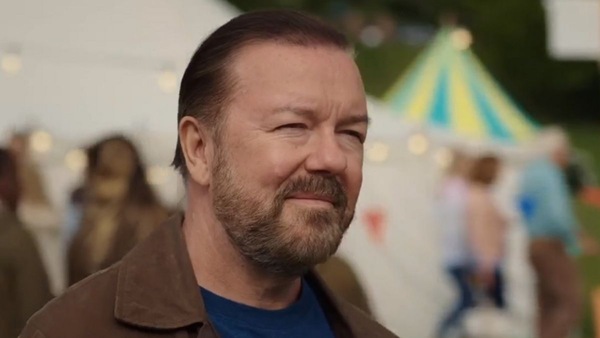After Life Season 3 review: Therapy for the soul
Ricky Gervais’ sombre British black comedy series returns for its third and final season

Last Updated: 12.24 PM, Jan 17, 2022
Story:
The suicidal widower, Tony (Ricky Gervais), who continues to struggle with the loss of his wife to cancer, searches for new meaning and hope in his life. His platonic relationship with Emma appears to be heading nowhere, as he slowly begins to understand the pain of those around him.
Review:
When it comes to black comedy and satire, there are not many who can do it better than the British, and Ricky Gervais is one of the best in the world. The filmmaker, actor and comedian gained recognition after his Emmy win for creating The Office along with Stephen Merchant. He played the lead as the egotistical yet ignorant boss David Brent in the series. He became a household name after The Office was adapted into an American TV series, with Gervais as an Executive Producer, and Steve Carrel playing the American version of David Brent as Michael Scott. He has since become a cult hero with his brutally honest monologues on Hollywood culture.
Ricky Gervais’ foray into an emotional black comedy did raise a few eyebrows as critics were sceptical on how he will blend his trademark black comedy with an emotional story that explores loss and grief. But the first season of After Life garnered immense praise for its treatment of sensitive topics whilst also delivering excellent humour throughout the narrative. Season two followed in a similar fashion with great performances, an engrossing screenplay and a heartwarming tale. Considering season two ended with Ricky Gervais’ character Tony relapsing to suicidal tendencies, only to be saved by the doorbell, this season revolves around Tony in search of hope.

There have been some noticeable absentees this season. Mandeep Dhillon’s Sandy and Roisin Conaty’s Daphne did not reprise their roles for the final season due to covid related scheduling conflicts. The void left by Sandy in the show was filled by Kath Hughes’ Coleen, who makes a good impression during the short screen time she was afforded. This season, there is a very conspicuous shift in narrative from Tony’s issues to those around him. It is an obvious attempt by the writers to balance the story with the idea that everyone has their own inner demons that haunt them. Tony gains a new perspective as a result and tries to make amends with the people he may have upset with his occasionally inconsiderate behaviour.

Tony’s relationship with Emma stagnates as he is still depressed about the death of his wife. Fans of the show who were hoping for Tony to finally move on with his life will have bittersweet reactions to how the series ended. While one might consider the ending as ambiguous, there is enough evidence to suggest that there is a definite conclusion to the story with respect to Tony’s arc. The other leading characters such as Matt (Tom Basden), Lenny (Tony Way), Kath (Diane Morgan), Pat (Joe Wilkinson), Anne (Penelope Wilton), Brian (David Earl) and James (Ethan Lawrence) have their arcs thoroughly realised come the end of the series.

Ricky Gervais’ penchant for black comedy remains as good as ever with great scenes and moments throughout the season. His signature style and comedic timing along with the heartbreaking scenes that explore grief is captured with delicate care and attention. It also acts as a social commentary on several contemporary issues such as grief, trauma, mental health and existentialism. After Life remains among the few TV shows (such as Schitt's Creek) that can make one laugh out loud in joy, but also shed a tear in despair, in equal measure.
Verdict:
The protagonist of the show, Tony, has an uncharacteristically limited evolution as a character from the pilot to the series finale. Tony remains heartbroken and in mourning during the entirety of the series, despite the best efforts of those around him. However, his nihilistic view on society slowly changes to one of hope and redemption. The ending might not be as poetic as one would hope but does give a certain sense of realism that is relatable on so many different levels.
WHERE
TO WATCH
Subscribe to our newsletter for top content, delivered fast.

